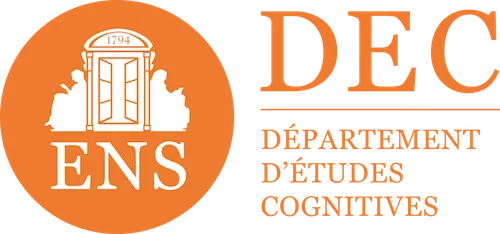

Why is eLearning for sales forces not working (and how to fix it)?
Sales & eLearning: booming... and yet.
Nowadays, eLearning is flourishing in every corner of the web and sales professions are no exception. All the better, because the needs are very real. But in the end, as attractive and practical as these courses are, how many of us really feel that we have acquired something useful, and that we are making progress in the field?
And yes, despite this enthusiasm, the majority of online training courses for salespeople seem to not keep their promises. Why? While there is of course no single answer, we now know that the key often lies in an inadequate pedagogy which is struggling to translate into concrete actions on the ground, and in processes too resource-intensive. However, it is not inevitable and here are a few tips!
Selling: a cognitive puzzle
Let's say it: pursuing a commercial career, whether on the road or in a store or even behind a telephone, is like engaging in a complex intellectual labyrinth where each interaction and each situation reveals new challenges.
- Know your products and your market : Beyond memorizing simple technical data sheets, a salesperson must finely understand the nuances, advantages and opportunities offered by each product. It's not just about specifications, it's a story to tell.
- Advising with relevance : The role of sales forces has evolved. We are no longer content with selling, we have to guide. The salesperson becomes a real consultant, bringing added value, long before concluding a sale.
- Identify the needs of the prospect : The challenge is to listen actively. Each prospect is an enigma to be solved, a puzzle made up of needs, expectations and a specific context. It is a delicate dance between questioning and interpretation.
- Control your emotions : In the middle of negotiations, with sometimes high stakes, knowing how to remain zen, analytical and professional is one of the most valuable skills a salesperson can possess.
Each stage of sales therefore hides its own cognitive challenge and it is essential that these complexities are each addressed with the right approach during training courses to ensure their effectiveness in the field.
The core of the problem: learning transfer
The real challenge lies in the learning transfer, that is, being able to apply the knowledge acquired during training in contexts different from those from which it was learned. In short, it is not enough to know information and to remember it to be more effective on the ground. You have to know how to detect when and how to apply it in a relevant way in a variety of situations. To achieve this, three elements are essential:
- The practice : And that, you guessed it, in varied situations that simulate the reality on the ground.
- Precise feedback : Clear and personalized feedback that guides us towards improvement. Cognitive science research is also categorical on theThe effectiveness of feedback.
- Explicit learning : What to pay attention to? What results should we expect? How to adapt precisely?
But to bring these 3 elements together, some obstacles stand in our way:
- The weather : While each business issue requires a different pedagogical approach, it takes a lot of time to deal with everything. A time that teams often lack...
- Expertise : Very often sales experts do not have the necessary pedagogical expertise. It's normal, it's just not their job.
- The constant evolution : Markets are changing, products are evolving. Training must keep pace in near real time. It's a big challenge to keep your training up to date all the time.
How do you lead the transformation?
Now that all this has been said, how do you set up a training course that meets these criteria? No surprise, choosing your training solution is essential. That's where the Learning Transformation Platform (LTP) comes in.
Where LTP differs from traditional LMS is in its fundamental objective: to lead to transformation, to guarantee a tangible and effective transition to action on the ground. It is no longer simply training, even though engaging, it is a metamorphosis of skills.
Didask's Educational AI is at the heart of this revolution. It is the fruit of a alliance between technology, pedagogy and cognitive sciences. With it, pedagogical complexity is absorbed by the tool itself, allowing experts to focus on what they do best: sharing their expertise.
Let's take an example to make this more concrete.
Let's imagine Caroline, sales director of a large software company. She identified that some of her salespeople were having difficulty closing their sales on time. However, her team includes William, a sector manager recognized for his expertise in the art of commercial closing, with a lot of experience in the field.
Caroline decided to entrust him with the creation of a training course on the subject. William never designed training modules, but that's no longer a problem. : thanks to the Educational AI, he only has to follow the guide without worrying too much about educational engineering. The head of sector already has a lot of written documents with an interesting background, but far too long and a bit soporific.
By copying and pasting it into Didask, the AI will automatically identify the most essential concepts, granularize them, propose the most appropriate teaching methods (we remove the obstacle of expertise) and directly create complete granules (scenarios, feedback, key messages, etc.) that William can of course adapt as he wishes, because he is the captain on board. In addition, William also has other information in mind that he considers relevant to transmit. No problem, all he has to do is type them “in bulk” or even dictate them and the AI will start his work in the same way as before and just as quickly (we remove the time obstacle).



In one click, the modules are ready for broadcast for learners. And no additional work for the person who manages the delivery and administration of training courses. Are the products or the market moving? William comes back when he wants to make his changes, always with the help of AI, and the updates are immediate (we remove the obstacle of evolution).

The result? The modules immediately resonate with the sales team. They recognize the challenges, the situations described, and feel genuinely supported in their skills development. Once back on the ground, they are in a position to do their famous learning transfer!
For Caroline, it is a double victory: she guarantees quality training, while streamlining her organization.
Therefore, the Learning Transformation Platform is not just a new trend, but the most effective solution for business training. A future where technology meets humans, for a profound and lasting transformation of skills. Ready to try?
Make an appointment directly with our eLearning experts for a demo or simply more information.












